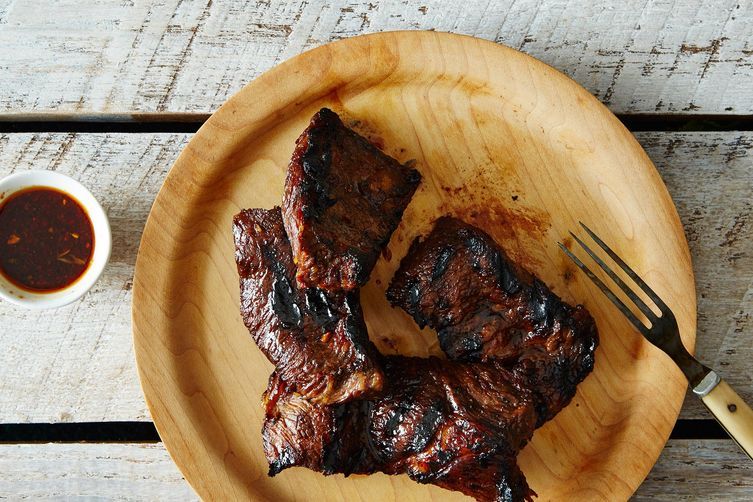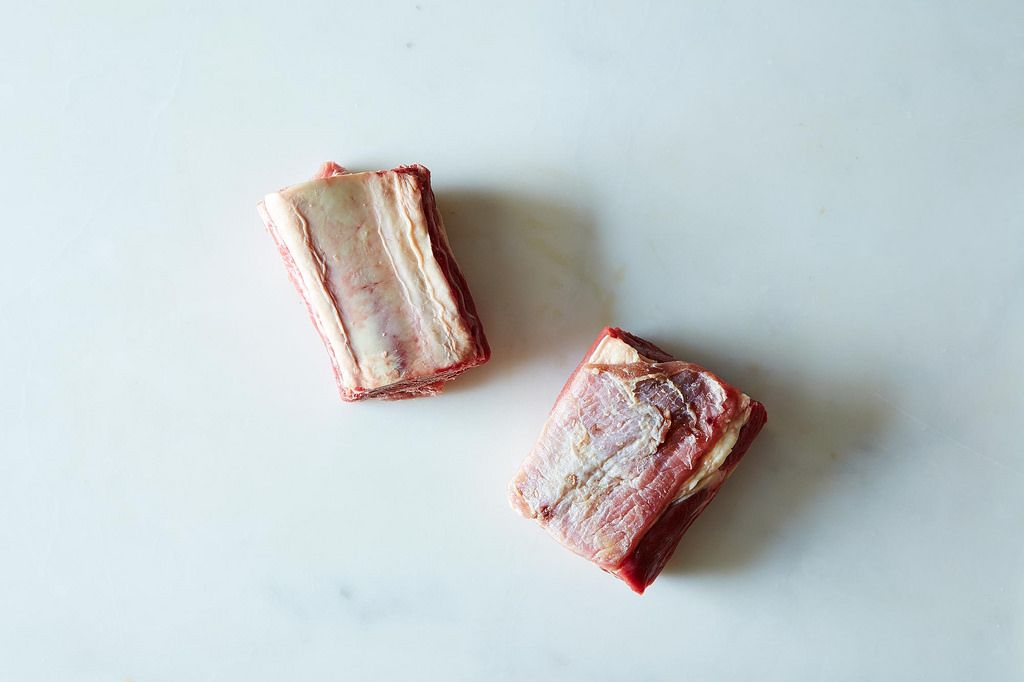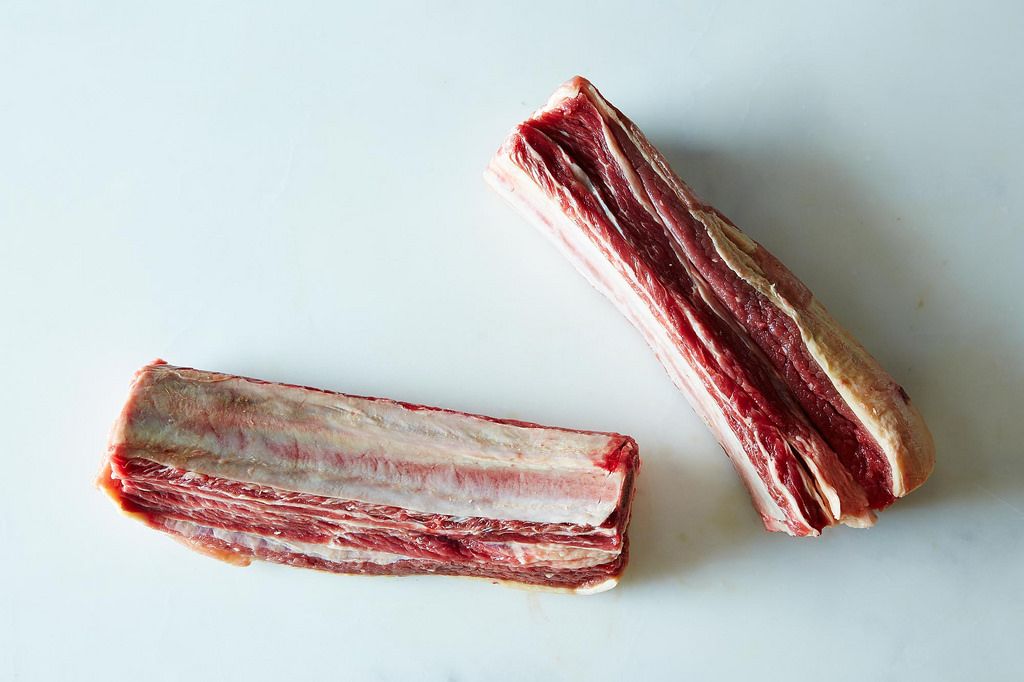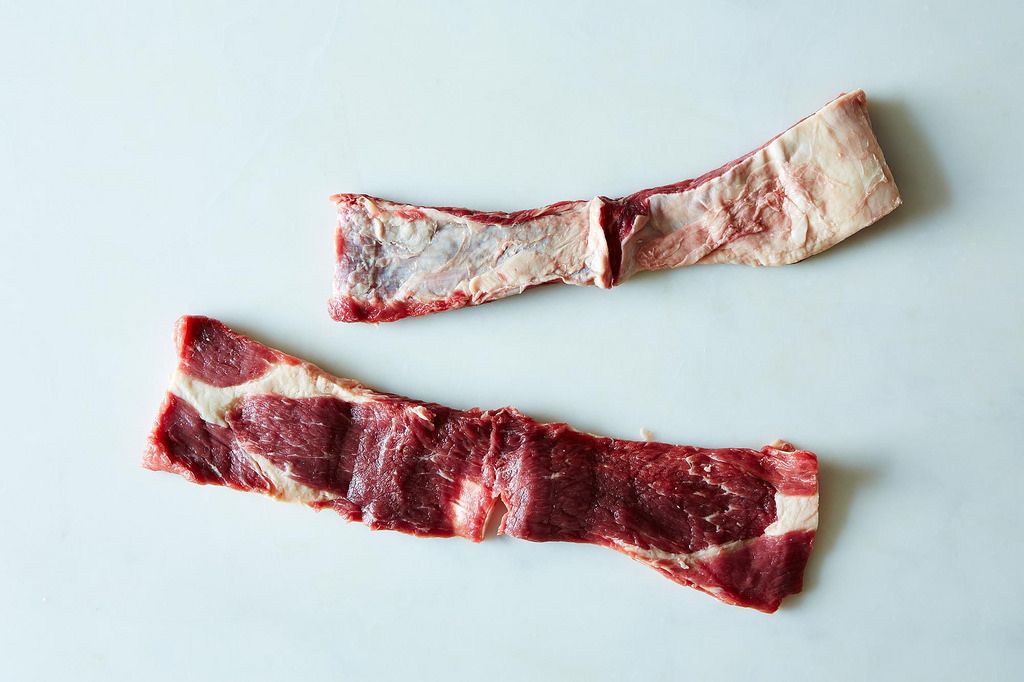Popular on Food52
10 Comments
Mr_Vittles
August 12, 2014
Flanken cut ribs are my go to beef rib. I like how easy they are to marinade or just cook with salt and pepper. Generally, the ones I buy are so well marbled they do not need to be tenderized with harsh vinegars. If I do marinate them I will use fruit like Koreans do. Asian pear, kiwi, or a little pineapple, work fine for me. The Hawaiians developed an interesting preparation of flanken cut ribs that is like a hybridization of Korean and Polynesian techniques. They call it pipi kaula and it is seriously good.
Guy
August 12, 2014
I already do that. Just trying to correct some misleading info you presented.It would be nice if you had an answer for how much vinegar is too much,rather than 'it should be fine'.
Cara N.
August 12, 2014
1/4-1/2 cup of acid per 5 pounds of meat is what I have found, through much trial and error, to work.
Guy
August 12, 2014
What benefit is there to adding the acid the night before? You should try this recipe and add the acid once the food is in the pot.I too was unaware of this till I tried eliminating all acid from marinades and noticed the protein is much more intact when adding the acid at cooking time.
Cara N.
August 12, 2014
I find that this amount of acid on this amount of tough meat helps to tenderize it, it will not cook it or make it mushy, but if you're more comfortable adding it right before that's fine.
Guy
August 12, 2014
From Serious Eat's website:
"Acids like lemon juice or vinegar will "cook" meats, so the longer they marinate, the more they cook and result in a dry and mushy texture once grilled. For heavily acidic marinades, I make sure not to go over four or five hours marinating time to avoid those downsides."
http://www.seriouseats.com/2014/05/how-to-make-great-grilled-kebabs.html
"Acids like lemon juice or vinegar will "cook" meats, so the longer they marinate, the more they cook and result in a dry and mushy texture once grilled. For heavily acidic marinades, I make sure not to go over four or five hours marinating time to avoid those downsides."
http://www.seriouseats.com/2014/05/how-to-make-great-grilled-kebabs.html
Guy
August 12, 2014
Acid overnight? That is not good advice.
The marinade will be just as effective if you leave out the acid till you're ready to cook it. Otherwise,you are technically cooking/curing the protein in the marinade,which is not what you want to do with meat.Any acidic marinade needs to be quick,never overnight.
The marinade will be just as effective if you leave out the acid till you're ready to cook it. Otherwise,you are technically cooking/curing the protein in the marinade,which is not what you want to do with meat.Any acidic marinade needs to be quick,never overnight.
Cara N.
August 12, 2014
The amount of acid is small enough in comparison to the amount of meat that it won't cook the meat. You're right that this can happen if the acid levels are high, but this marinade is fine overnight for 5 pounds of meat. Feel free to do it for as short a time as you want though.





See what other Food52 readers are saying.